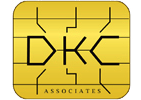New features for Entrust® IdentityGuard mobile provide simply better authentication, as well as strong and convenient transaction verification
MINNEAPOLIS, Minn.—(April 21, 2015)—Entrust Datacard today announced the introduction of a new push authentication capability in its Entrust® IdentityGuard Mobile platform that allows authorized users to more easily and securely access VPNs and websites with their mobile phones or tablets.
Instead of introducing another easily misplaced or forgotten hardware token, introducing complex passwords or series of security questions, the new IdentityGuard Mobile push authentication sets up a secure session using a mobile device by instantly pushing alerts to the users to verify login right as they access their VPN network. With a simple “OK” acknowledgement from the user, the VPN or website access is securely established – making it much faster and more convenient to authenticate users and secure the connection.
"Due to the changing threat landscape, addressing regulatory compliance and breach threats means companies need to continuously secure employee access to company networks and applications – especially as the workplace becomes more mobile and ubiquitous," said David Rockvam, vice president of product management for Entrust Datacard. "It only makes sense that authentication solutions align with that new reality. At Entrust Datacard, we are transforming mobile devices into secure, simple to use, always in hand authenticators to ensure data is protected for businesses and people."
While the user experience is incredibly simple, the new feature is rooted in Entrust Datacard’s most advanced approach to defeating account takeover attacks. Adopting this new mobile-enabled push notification approach allows enterprises to evolve from older, less secure methods that rely on usernames, passwords and hardware tokens. In addition, it reduces IT cost and complexity by eliminating the need to purchase dedicated and often costly hardware tokens, as well as simplifies user provisioning and management because users already know how to download and upgrade mobile applications.
"Enterprises are looking to evolve away from passwords and move onto more secure and convenient authentication," said Rockvam. "This new IdentityGuard Mobile push notification feature is especially appealing to users and IT staff because it greatly enhances security, yet makes the process simpler for authorized users. No more forgotten or compromised passwords for users, and less worries for IT professionals."
Mobile push authentication is a key element of the Entrust IdentityGuard enterprise authentication platform, which is designed for flexibility and scalability. Organizations can deploy the platform for their uses today, and then as requirements change or new threats emerge, Entrust Datacard customers can quickly scale up capacity or deploy new technologies by simply unlocking new functionality through the platform.
IdentityGuard Mobile Push Authentication is part of the latest release of the IdentityGuard platform that includes a number of innovative capabilities to help banks and other enterprise customers address their identity based security needs. Specifically, the IdentityGuard platform now supports both QR code-based transaction verification and the recently introduced Microsoft Active Directory Federation Services (ADFS) 3.0.
QR Code-based verification provides banking customers a strong and convenient mobile-based approach that eliminates the need for dedicated hardware such as EMV CAP readers or pocket tokens. Additionally, support for Microsoft ADFS 3.0 allows IdentityGuard mobile two-factor authentication to be extended to all cloud-based enterprise applications that leverage ADFS 3.0.
The new release of the IdentityGuard platform is now available and more information can be found at https://www.entrust.com/products/entrust-identityguard/.
Source Entrust Datacard










